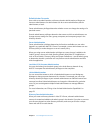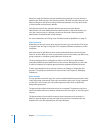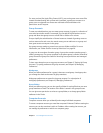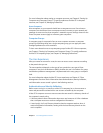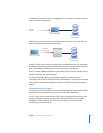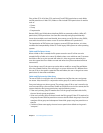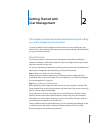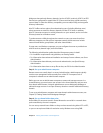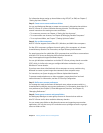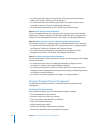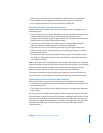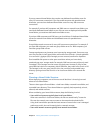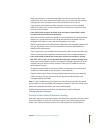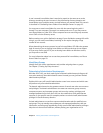
2
31
2 Getting Started with
User Management
This chapter provides information about planning and setting
up a user management environment.
To create an effective user management environment, you must carefully plan your
network. Then, when deploying the network, you must systematically and methodically
set up your network resources.
Setup Overview
This section provides an overview of user management setup tasks, including the
sequence of stages an administrator follows to create a managed environment. Not all
steps are necessary in every case.
For a more comprehensive approach to planning, security, server setup, installation and
deployment, management, and monitoring, see Server Administration.
Step 1: Before you begin, do some planning
Analyze your users’ needs to determine which directory service configuration and
home folder setup is the most suitable. For more information, see “Planning Strategies
for User Management” on page 34.
Step 2: Set up the server infrastructure
Before deploying client computers, make sure one or more computers with Mac OS X
Server installed is set up for hosting accounts and share points. New servers come with
Mac OS X Server software preinstalled.
Set up the server so it hosts or provides access to shared directory domains. Shared
directory domains (also called shared directories) contain user, group, and computer
information you want multiple computers to access. Users whose accounts reside in a
shared directory are referred to as network users.
There are different kinds of shared directories. You can use Workgroup Manager to add
or modify accounts that reside in read/write directory domains such as an Open
Directory domain or the local directory domain.



